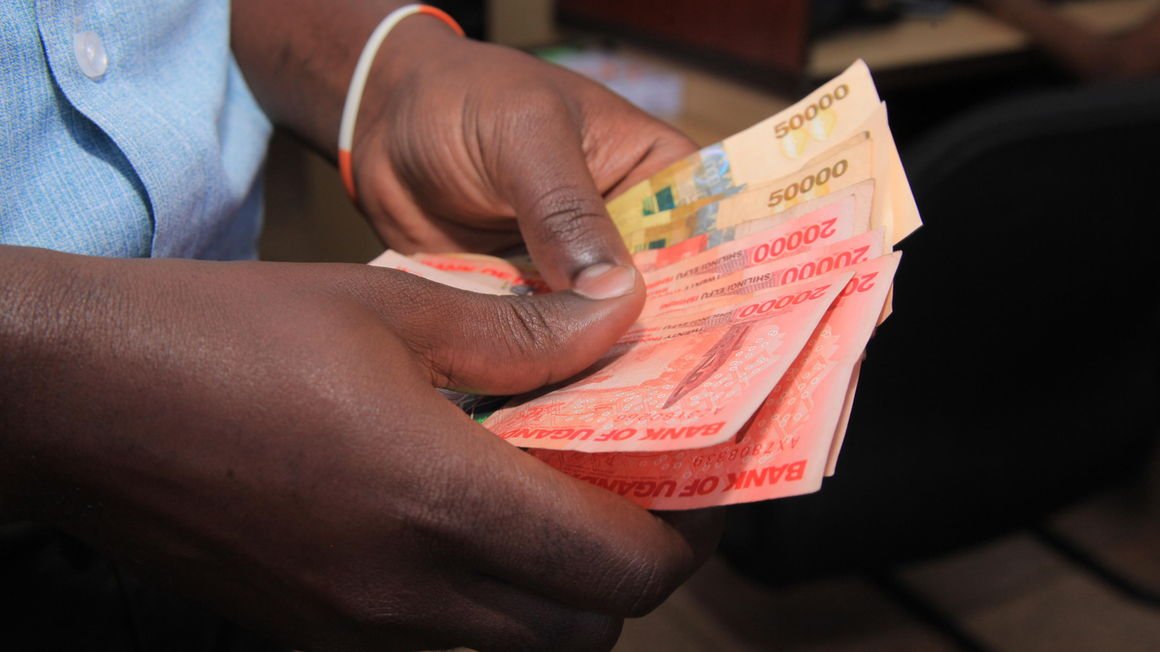A man holds some money. dfcu Bank offers financing options for SMEs in a form of; unsecured bid guarantees of up Shs500 million. PHOTO/Rachel Mabala Most SMEs still have not fully recovered from the aftershocks of the coronavirus pandemic while some SMEs have closed due to the financial constraints.
When governments across the globe imposed lockdown measures to curb the spread of Covid-19, Small and Medium-size Enterprises (SMEs) were among those that were hit the hardest and some are still suffering the ripple effects. In Uganda, social distancing, border restrictions, and transport shutdowns played and still are part of the disruption of supply chains for SMEs which affected the movement of goods, cash flows and consumer demands.
But what had started as a health crisis, soon evolved into an economic crisis that would last longer than had previously been projected. Despite the financial effects of Covid-19 on SMEs (failure to pay rent, suppliers, wages, creditors), Uganda is still on course as one of the world’s fastest-growing economies in 2020, with a projected growth of 2.1 per cent, according to the latest Bloomberg report. This means that there is still hope for SMEs to maneuver the wave of Covid-19.
Nearly a year on, most SMEs still have not fully recovered from the aftershocks of the coronavirus pandemic while some SMEs have closed due to the financial constraints that came with the pandemic mainly because they lacked cash reserves and could not access financial support.
As the government continues to implement measures to support key business and with the recent announcement that businesses will get bailed out after the election season, there are several funding solutions SMEs can explore.
For SMEs in the contract business and bids, an option of financial backing from banks and other financial institutions can be explored. Dfcu Bank offers financing options for SMEs in a form of; unsecured bid guarantees of up Shs500 million, guarantees and bonds, and letters of credit. This includes; unsecured contract financing of up to Shs100m, invoice discounting of up to 70 per cent invoice value, contract financing of up to 50 per cent of the contract value, and asset financing of up to 80 per cent of the asset value. On the financial mitigants that the contractors face, dfcu bank provides collateral risk cover of 30 per cent minimum acceptable collateral and insurance cover and this has a turnaround time of 5 hours.
SMEs can also consider […]
